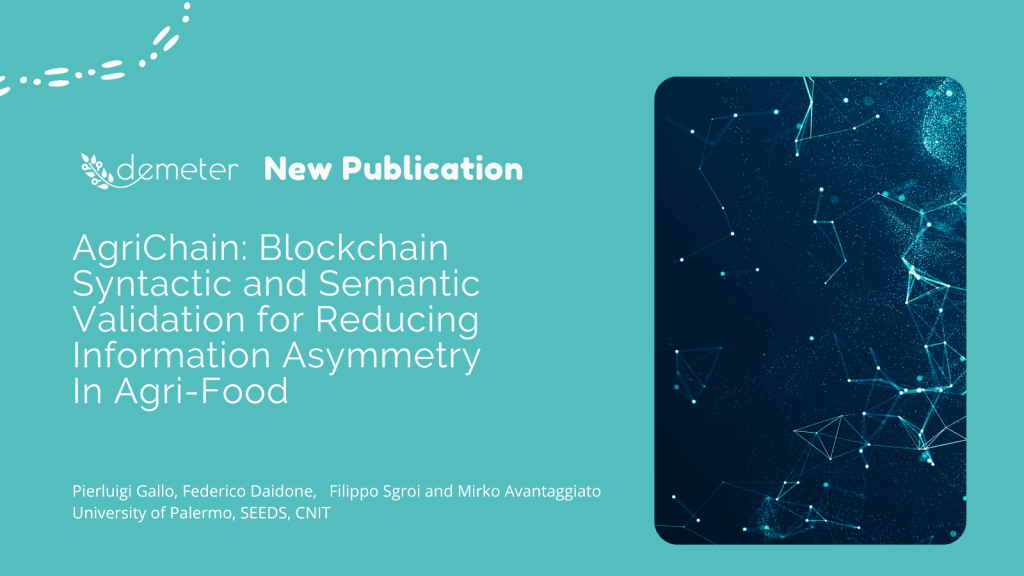
SeedsBit was one of the winners of the 1st DEMETER Open Call, DEVELOP. SeedsBit addressed the blockchain-based solutions for agricultural applications challenge. In doing so, the company developed PerSePHOnE (Permissioned SeedsBit Traceability Platform Integration from Field to HoReCa with Ontology Extension). PerSePHOnE is a system that guarantees the quality and validity of data and integrates DEMETER providing a clear track of events together with the reason why they occurred, includes tracking and tracing abilities for products and transformation processes.
Pierluigi Gallo of SeedsBit and University of Palermo was one of the authors of the publication ‘AgriChain: Blockchain Syntactic and Semantic Validation for Reducing Information Asymmetry In Agri-Food’ which was presented at ITASEC22, the Italian Conference on Cybersecurity in June 2022. Part of the platform presented in the paper was proposed within the DEMETER ecosystem as part of the Open Call.
The abstract reads:
Information asymmetry affects the actors of all the segments of the agri-food supply chain and can arise many problems in the market along the production chain. Transactions of agri-food products are asymmetric because suppliers and buyers have different levels of knowledge on the provenance, value, quality, and freshness of food. Collusive relations among the agri-food chain actors, especially between controllers companies and controlled ones, can cause market failures as they influence customers’ purchase decisions and severe health accidents when food safety is compromised. This paper proposes using blockchain technology to combat information asymmetry and collusive relations. In addition to transparency, cryptography and trusts, which are natively provided by the blockchain, our approach provides a twofold mechanism for validating crowd sensed data: first, a lightweight syntax validation is run before writing data in the blockchain (providing accountability also thanks to immutability); then, a dedicated smart contract runs semantic validation in scenarios with multiple data sources. This semantic validation may reveal collusive behaviours, downgrade colluding nodes and exclude or down-weight their data in future validations. The smart contract seals data that pass both validations adding metadata on data quality. Results prove the feasibility of our solution on Hyperledger Fabric under the assumption that the majority of nodes are honest. Experimental results demonstrate that our implementation of the twofold validation using smart contracts scales well with the dimension of the blockchain state. Our mechanism may greatly impact Product Certification and Designation of Origin as it may be applied to check specific requirements for raw materials, products, and production processes and protect from the collusion of controlling consortia and certification bodies.
Full paper is available here


